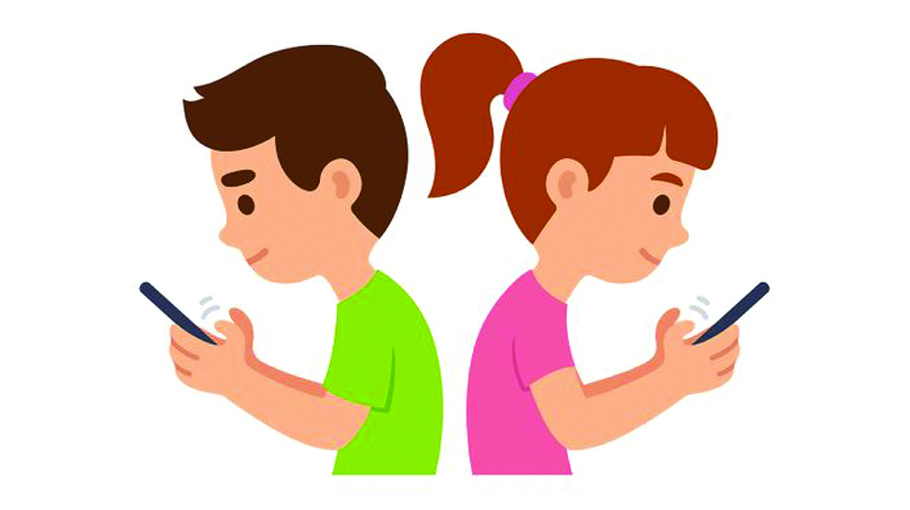Why social media is riskier for kids than ‘screen time’
Heavy social media users are two to three times more likely to be depressed than non-users



Suppose your 13-year-old daughter wants to subsist on candy during this drawn-out pandemic, and she challenges you to prove that candy is bad for her. For help, you turn to the internet — and find many newspaper articles with headlines like “Don’t freak out about sweets for teens!”
You are surprised to find that many of the scientific papers these articles are based on use a very broad definition of “sweets” — one that included not only candy and soda but also fresh fruit, carrots, and beets because of their sugar content. But you wonder: What if the research had been based on what your daughter is really after — junk foods with lots of refined sugar, such as candy and soda?
This is where we are with research on digital media use and mental health among teens — a place where the most-cited studies are obscuring real risks.
Nearly all the articles telling parents not to worry about their children’s media consumption cite studies about “screen time” or “digital technology use.” But this is a broad category that resembles defining “sweets” as everything from carrots to candy instead of considering which activities might be worse than others.
Poor mental health
One of the most widely cited studies, from a research team at the University of Oxford, used an advanced statistical technique to run more than 60,000 analyses on three large data sets. They found that teens’ screen time does indeed correlate with poor mental health but also found that “the association of well-being with regularly eating potatoes was nearly as negative as the association with technology use,” a conclusion that made headlines.
The paper’s definition of “screen time” included watching TV or simply owning a computer as well as healthy social interaction such as talking with friends on the phone. It also included social media, known for being more performative and toxic. Does the story change when we limit the analysis to social media, which is where teenagers gather most often?
It does, enormously. In a new paper, we used the same advanced statistical technique and found that the link between social media use and poor mental health for girls was 10 times as large as what the Oxford paper identified for “screen time.”
A recent paper by two Spanish statisticians also examined the Oxford researchers’ techniques and also found a much stronger link. These findings fit with Facebook’s internal research, leaked by a whistle-blower and published last fall, which concluded that Instagram led to depression and body image issues, particularly among teenage girls.
The new study shows that, for girls in particular, the correlation between mental health and social media use is larger than that between mental health and binge drinking, being suspended from school, lack of exercise, and being stopped by police (in Western countries).
That does not mean these unwise activities are safer than social media use. But it does mean that if we’re going to dismiss social media for small statistical associations, we’ll also have to dismiss a long list of activities routinely targeted for public health interventions.
If you wonder what this link looks like in practical terms, consider this figure: Heavy social media users are two to three times more likely to be depressed than non-users. Knowing that, would you let your kids spend unlimited time on Instagram?
Just say no
Of course, correlation does not prove causation. Perhaps depression comes first, which causes depressed teens to seek solace on social media. That may be part of the story, but many experiments show that the causal arrow does go from social media use to depression.
So what should you do if your 13-year-old daughter launches a dispute similar to what we described above about candy: She wants to spend eight hours a day on her phone, and she challenges you to say why she shouldn’t? First, talk to her about her goals and what matters to her — how does she want to spend her time?
How does she feel when she FaceTimes her friends, compared with when she scrolls through the pages of Instagram influencers? Discuss how social media apps are designed to keep people using them as long as possible, because that’s how the companies make the most money. If your child is 12 or younger, the decision is even more straightforward: 13 is the minimum age to have an account under the social media platforms’ rules, so just say no.
Our finding, that social media has a stronger link to mental health problems than “screen time” more generally, is good news for parents. Instead of being faced with the nearly impossible task of controlling all of our children’s technology use, we can zero in on the activities that appear to be the most harmful, especially social media.
That’s no small potatoes.
Jean M. Twenge is a professor of psychology at San Diego State University. Jonathan Haidt is a social psychologist at New York University’s Stern School of Business. Kevin Cummins is an assistant professor of public health at California State University at Fullerton. Source: Washington Post




